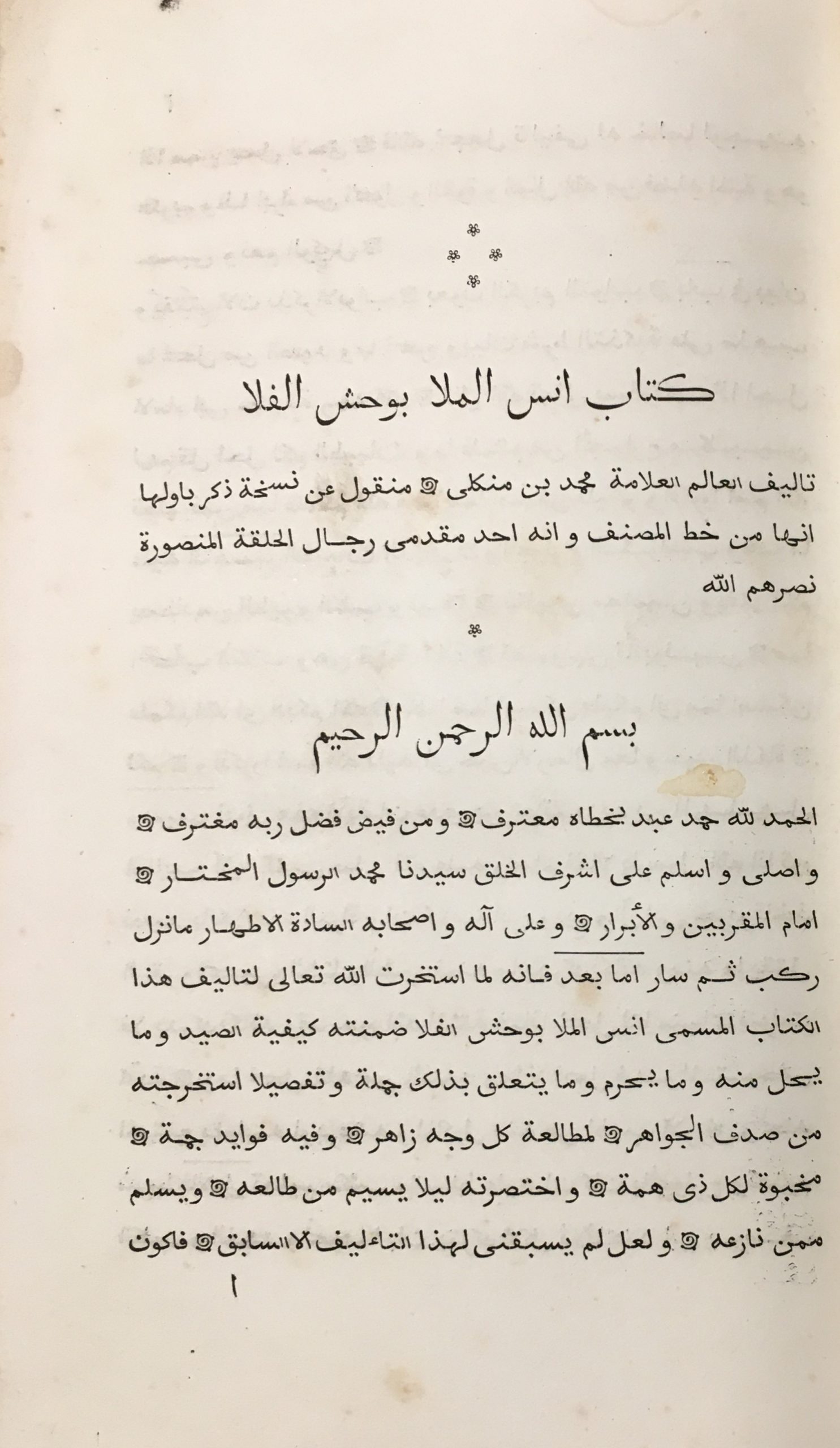Traité de Vénerie. Traduit de l’Arabe par Florian Pharaon avec une introduction par M. Le Marquis G. de Cherville. [Kitab Uns al-Mala Bi – Wahsh al-Fala].
El Mangali, Sid Mohamed.
Synopsis
Rare limited and numbered edition of 300 copies.
The basic Mamluk work on hunting was Ibn Mangali’s Uns almala bi-wahsh al-fala, compiled in 773/371. The originality of this work lies in the first few folios, where the author provided important information about the types of saddles and the techniques of hunting on horseback with the bow, spear and sword. The rest of the treatise is entirely drawn from earlier sources (acknowledged), especially al-Asali’s al-jamhara’ Furusiyya I, p.126.
The work “Contains a description of the Syrian method of taming and training hawks. The Saker is particularly mentioned as a bird of double passage, and several varieties are noted. There is a chapter on the first man who ever tamed the Saker, and another on the mode of taking the Ostrich with the Sakers. Other Eastern falcons are described, with remarks on their qualifications and peculiarities. Some useful advice, evidently derived from experience, is given in regard to the feeding of Hawks, and the management of them on a journey” (Harting)
Ibn Mangali’s works on tactics, hunting and army strategy constitute a major contribution to Muslim thinking. He held the rank of commander of forty (muqaddam) in the halqa and was Naqib al-jaiysh in Alexandria under Sha’ban. He wrote most of his works when he was in his sixties and seventies.
The translator Florian Pharaon was the grandson of Napoleon’s interpreter in Egypt. His father had been an interpreter and he himself was an interpreter in the French Armée d’Afrique. He dedicated this translation to marquis G. de Cherville.
Bibliographic references: Harting 212. Souhart 376. Cf. GAL II, p. 136 & S II, p. 167.








